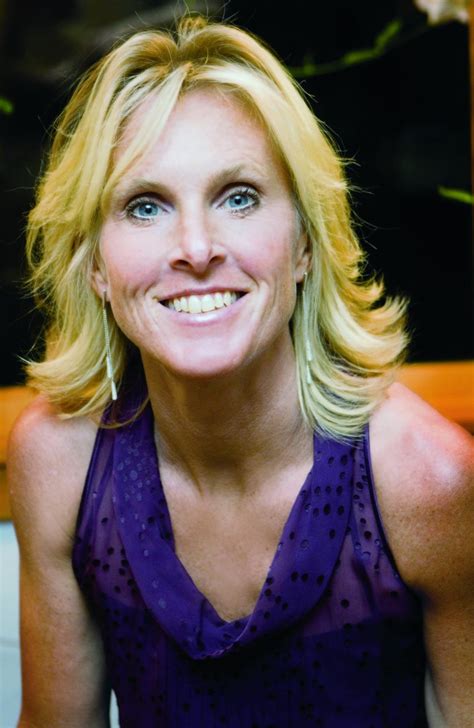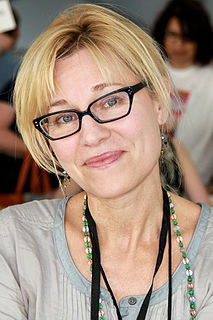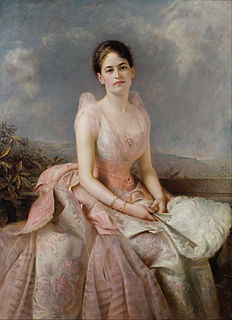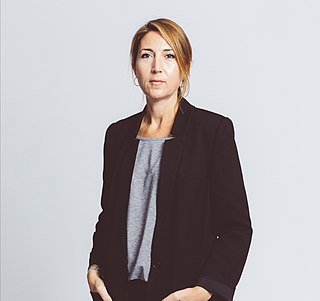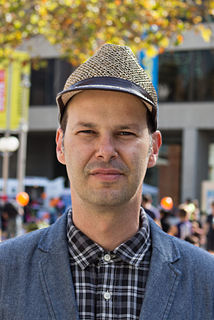A Quote by Alan Cheuse
When Edna O'Brien's first novel, 'The Country Girls,' was published in 1960, her family and neighbors in the small Irish village where she was born tossed copies into a bonfire expressly set for that horrifying purpose.
Related Quotes
All my family look Irish. They act Irish. My sister even has red hair... it's crazy. I'm the one that doesn't seem Irish. None of the kids in my family, my siblings, speak with an Irish accent... we've never lived there full-time; we weren't born there. We just go there once or twice a year. It's weird. Our parents sound Irish, but we don't.
My first mentor and inspiration was my Irish Dancing teacher Patricia Mulholland. She created her own form of dance known as Irish ballet and created stage productions of old Irish myths and legends. They were my first experiences on stage. She told my mum I was destined for the stage, and I took that as my cue.
When my first daughter was born, my husband held her in his hands and said, 'My God, she's so beautiful.' I unwrapped the baby from her blankets. She was average size, with long thin fingers and a random assortment of toes. Her eyes were close set, and she had her father's hooked nose. It looked better on him.
I was happy to spend time with my family, get to know my daughter, who was born during The West Wing. I missed her first words. I missed her first steps. I'd leave work before she woke up and got home after she was asleep and didn't really know her. So it was important for that reason to reintroduce myself to the family after all of that hard work.
HONOR. This means that a girl is not satisfied with keeping the letter of the law when she really breaks it in spirit.
LOYAL. This means that she is true to her country, to the city or village where she is a citizen, to her family, her church, her school, and those for whom she may work or who may work for her.
HELPFUL. The simplest way of saying this for the very young Scout is to do a good turn to someone every day: that is, to be a giver and not a taker. This is the spirit that makes the older Scout into a fine, useful, dependable woman.
Imagine the first Burmese "giraffe woman"; she was probably a local icon in her village in the way she put the rings around her neck to sell her craft. Then she became a celebrity, so all of the wannabes started following her in that uncomfortable and unhealthy trend. But is that so different from Pamela Anderson? I don't think so.
In many poor countries, if the daughter is told who she's going to marry, and told that she's going to live in the village with her husband's family, she really has very little opportunity to make her own decisions. If she comes for a while to work in a factory, she has her own money. In family agriculture, it's never your money. It's whatever somebody decides to give you. For many people this is tremendously valuable, because then they can step up.
This comes from Mike Gonzalez at the Daily Signal: [ Howard] Zinn's history "set the stage for the grievance mongering that passes for history classes today, and is still widely used. It has sold over 2 million copies since it was first published in 1980 and continues to sell over 100,000 copies a year because it is required reading at many of our high schools and colleges. That's a lot of young minds."
My mother didn't feel sorry for herself, she was left with no child support, no alimony at a very young age, with a child to raise, a high school education and she just figured it out. She didn't complain, she didn't rely upon government, she relied upon her own skill set, her own self confidence, her own drive in moxie and her own duty to me and her and she relied upon her family and her faith.

